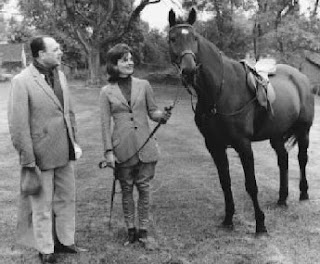There is cruel irony in the reality that Iraqi Christians have probably never felt as persecuted or under threat as they are following the country's liberation by 100,000 American troops. An invasion billed as a liberating event for the Iraqi people has become the noose around the neck of many ordinary Iraqis.
 |
| Detail from he Ishtar Gate at Babylon |
Press reports about the subdued Christmas celebrations, especially following an earlier attack on a Syrian Orthodox Christian church tend not to highlight Christian-Muslim amity prior to the US invasion. Today, Christian-Muslim harmony takes a back seat to almost daily outbreaks of intra-Muslim Sunni-Shia violence.
Several years after the demise of Saddam Hussein, ordinary Iraqis must be wondering whether the price paid to become a 'beacon of democracy' was worthwhile.
The average Iraqi may not have felt stifled by the inability to speak freely or criticize Saddam's ruthless government. However, Iraqis were generally safe walking the streets and leading a simple life.
Following the US invasion, all segments of society, women in particular, have been hard hit by the rise of political violence.
Winners have emerged from the new Iraq. The Shia community is one.
Previously discouraged from indulging in certain practices and barred from the corridors of power (as were Sunni extremists), Shias are now a free people. They only need protect themselves from bombs and violence perpetrated by Sunni foes, including Al-Qaeeda types.
Does anyone really know what the Iraq war was about: oil? Saddam Hussein? Weapons of mass destruction?
The cause may not be clear but at least one outcome is certain. The Iraq invasion has done more to solidify a distinct Muslim consciousness and a collective feeling of 'persecution' by the world at large.
The radicalization of European youth, including the London and Madrid bombings, has more to do with Iraq than Afghanistan. The Iraq war fits neatly within Osama's Pan-Islamist ideology. Al-Qaeeda could not have asked for a better publicity stunt.
Unfortunately, the damage from the Iraq war is done. It is time to move forward and advance an agenda of reconciliation. World nations must shift away from playing into Al-Qaeeda's divisive global agenda. The US withdrawal from (a shattered and divided) Iraq is a step in the right direction.
But that is not enough.
Muslims must confront the radical ideologies which have infused themselves into mainstream Islam. Without introspection, Islam will continue to blame external powers such as Israel and the US as the source of all evil. Muslim scholars have a duty to restore the Islamic faith; a responsibility to enlighten.
Surely, the devil does not only reside in Tel Aviv and Washington. The devil also finds a home within each one of us.



































